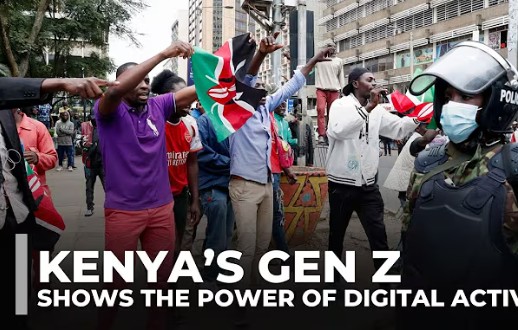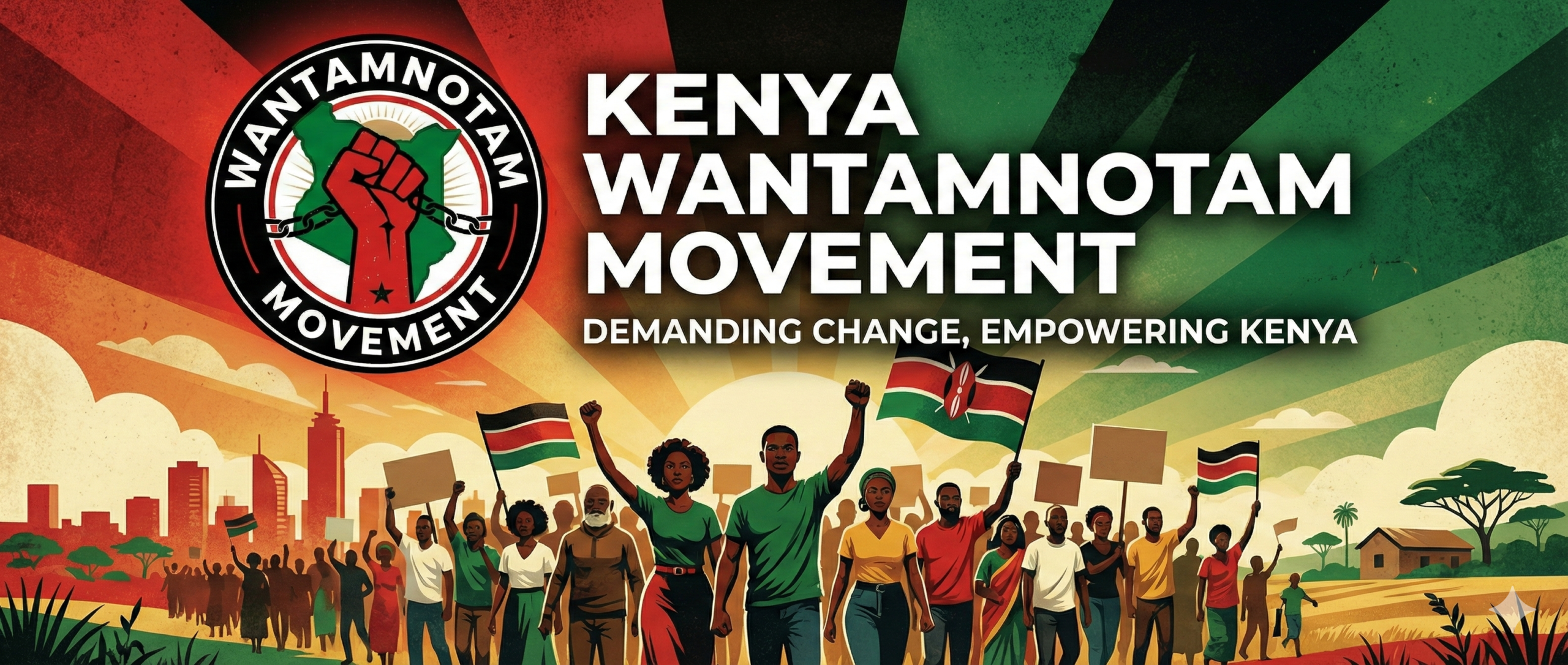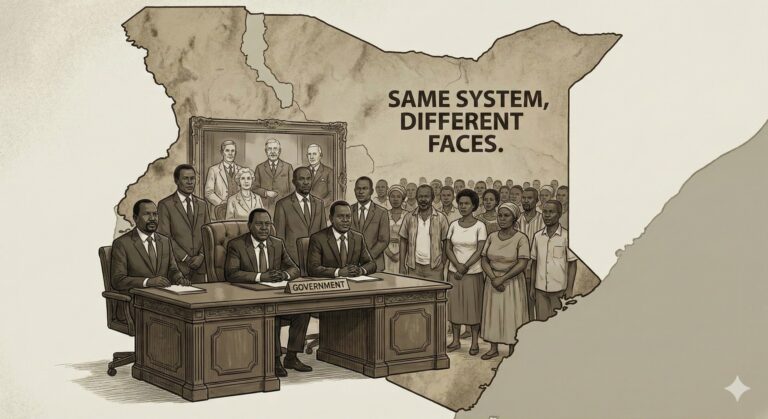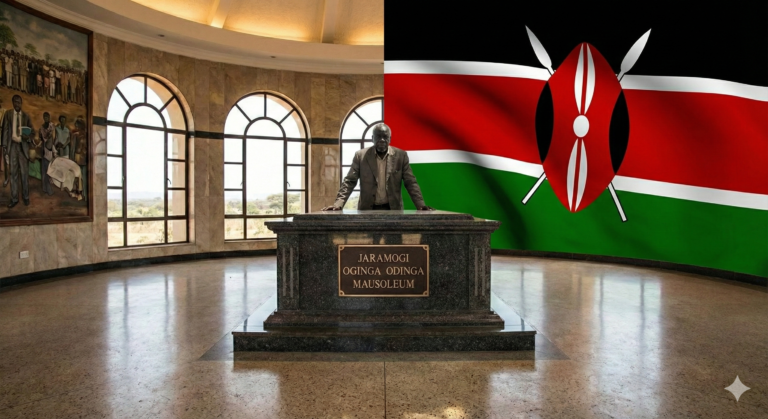
Youth Stand and Call for Change: The Rising Wave of Kenyan Youth Leadership
Kenyan youth, particularly those in their twenties and thirties, are speaking up with newfound confidence. Across shopping plazas and online forums, there’s a growing call: the next president must abandon outdated politics and introduce a fresh vision for Kenya. The idea that voting in the same politicians will lead to different outcomes is no longer valid. From the buzzing youth hubs in Kibera to university dorms in Eldoret, the demand for real change is undeniable. What they want is a leader who understands their reality—rising costs of living, slow internet speeds, and lack of job opportunities—one who can align national goals with the hopes and fears of Kenya’s youth.
Behind this loud call for change lies deep frustration with the broken promises of the past. Clinics running out of essential medicines, dilapidated classrooms, and underfunded public services have only fueled this demand. Youth voices are now at the forefront, rejecting the empty promises of older politicians who have long danced around reforms. With the rise of digital platforms like Skype and WhatsApp, the call for change has gained momentum, and the youth are ready to use their vote to back up their words. This is no longer just talk; it’s a movement.
Why Under-50 Leadership is the Key to a New Kenya
The desire for leadership that reflects the energy and innovation of the youth has never been stronger. Being under fifty symbolizes more than just youth—it signifies adaptability, a deep understanding of digital tools, and the energy to tackle complex, contemporary issues. Younger leaders are better equipped to understand and respond to the challenges faced by a generation that grew up with the internet, mobile banking, and startup culture.
However, it’s not enough to just be young. The youth demand leaders who have lived the struggles they face—leaders who understand the burdens of student loans, job insecurity, and the challenges of navigating a changing economy. It’s about a leader who pairs their youthful energy with fresh, bold ideas—not just someone with a number that marks their age.
Competence Over Connections: The Youth’s Demand for Action
Kenyan voters are more concerned with results than rhetoric. Stories of long waits at overcrowded clinics, families scraping together money for photocopied textbooks, and young doctors struggling with outdated equipment have shaped the views of the electorate. They are no longer satisfied with promises—they demand leaders who will deliver real, tangible solutions. Competence is key.
The digital-savvy youth are pushing for transparency and accountability like never before. They expect public services to be tracked in real-time: “vaccinations completed today,” “roads repaired this week.” With access to information at their fingertips, they are demanding clear data and regular updates. This push for clarity and results signals a shift toward a new kind of leadership—one where words are backed up by action, and promises come with measurable outcomes.
Zero Tolerance for Corruption: A New Generation’s Refusal to Tolerate Stolen Wealth
The youth have had enough of corruption. They are fed up with watching billions being siphoned away that could have been used to improve healthcare, education, and infrastructure. They are calling for swift justice—apologies, reparations, and the permanent disqualification of anyone involved in stealing from the public. Hashtags and viral tweets like “Your past crimes disqualify you” are amplifying the rising impatience.
The justice system, they argue, needs to work faster. When investigations stall or when suspects return to their old positions despite pending charges, the youth see this as a slap in the face. They want legal processes to move quickly and for politicians to be held accountable before election season rolls around.
Action Speaks Louder Than Words: The Call for Hands-On Leadership
The youth crave leaders who are not just figureshead politicians delivering speeches. They want to see action. Leaders who ride in matatus, stand in the rain at construction sites, and engage with the community firsthand—rather than waiting for cameras to roll for a staged photo op. They are tired of the scripted media events that seem disconnected from the struggles of ordinary Kenyans.
For them, true leadership is about being present in the moment, feeling the pulse of the nation, and responding immediately to challenges. They envision a future where leaders provide real-time updates on Instagram or Twitter, walking through flood-hit areas or visiting medical students in hospitals. Authenticity is key—action will always trump speeches.
Accountability: A Non-Negotiable Value for the Youth
In the eyes of the youth, there is no room for underperformance. They demand that public servants who fail to deliver should step down—no excuses, no more cushy positions for those who don’t perform. A cultural shift is underway: Kenyans are no longer content with suffering in silence. They want a system where officials are held accountable, and the public can monitor real progress. This cultural change from quiet acceptance to vocal accountability is a growing force across the nation.
New Faces, Fresh Energy: Reclaiming Leadership from the Old Guard
The youth are rejecting the same old faces in politics and are looking to fresh, local candidates to take the reins. University graduates, entrepreneurs, teachers, and grassroots leaders are emerging with new ideas and a genuine desire to serve their communities. These candidates are not just talking—they are showing up in villages, cleaning up neighborhoods, holding street talks, and engaging in real conversations with the public.
These newcomers are fearless, unafraid to speak the truth and confront the status quo. They refuse to be part of the corrupt systems of the past and instead offer solutions that reflect the needs and aspirations of the people. Their leadership is not about grand speeches or exclusive dinners—it’s about connecting with the masses and making a difference where it counts.
The Ripple Effect: Transforming Schools, Clinics, and Markets
Change at the top will create a ripple effect throughout the entire country. A president who enforces standards in schools will inspire teachers to show up on time and provide quality education. A focus on ensuring medicine in clinics will reduce the number of deaths due to preventable diseases. It’s these small but significant changes that can lead to real transformation across Kenya.
When leaders step up and hold local officials accountable, the impact is immediate. A mayor’s resignation for mismanagement can lead to improvements in local sanitation, while jail time for corrupt health officers can cut ambulance response times and save lives. These successes send a clear message: the youth demand action, not just words.
Kenya’s Generation Talks Back: A Call for Direct Engagement
Gone are the days when youth simply listened to their elders. Today’s generation is questioning, challenging, and holding politicians accountable. Online forums, social media platforms, and webinars have become spaces for young Kenyans to directly engage with candidates and demand answers. This new form of civic engagement is reshaping how politicians prepare for elections—candidates know they are under a microscope, and vague promises no longer cut it.
Stepping into the Voting Booth: Making Change a Reality
The final step in this process is voting. Despite fears of vote splitting, the youth are committed to showing up and casting their ballots. They know that the only way to break the cycle of disappointment is to take action—by voting for candidates who will deliver real change, not just recycled promises. Mobilizing their peers and organizing registration drives, Gen Z is ready to make their voices heard.
For them, voting is not just about choosing a candidate—it’s about choosing a process that demands results. They understand that this election is not just about the future of Kenya—it’s about setting a new standard for leadership, one that values performance over promises.
A Generation Refuses to Wait: A New Era in Kenyan Politics
The future of Kenya is in the hands of the youth. They are rejecting the old guard and demanding leaders who will deliver real, tangible results. This moment belongs to those who are not afraid to challenge the status quo, to those who are ready to build, fix, and transform the country. It’s no longer about waiting for change—it’s about making change happen now.
Across slums, suburbs, and screens, Kenya’s next generation of voters is sharpening its focus. They have no interest in recycled disappointments. They want leaders who will build schools, fix roads, ensure fairness, and deliver on promises. The ballot box is not just a tool for change—it’s a warning: serve well or step aside. The next president will either understand this new expectation or be left behind as the old era fades into history.
CLICK HERE:Listen To WANTAMNOTAM PODCAST AND TAKE ACTION




